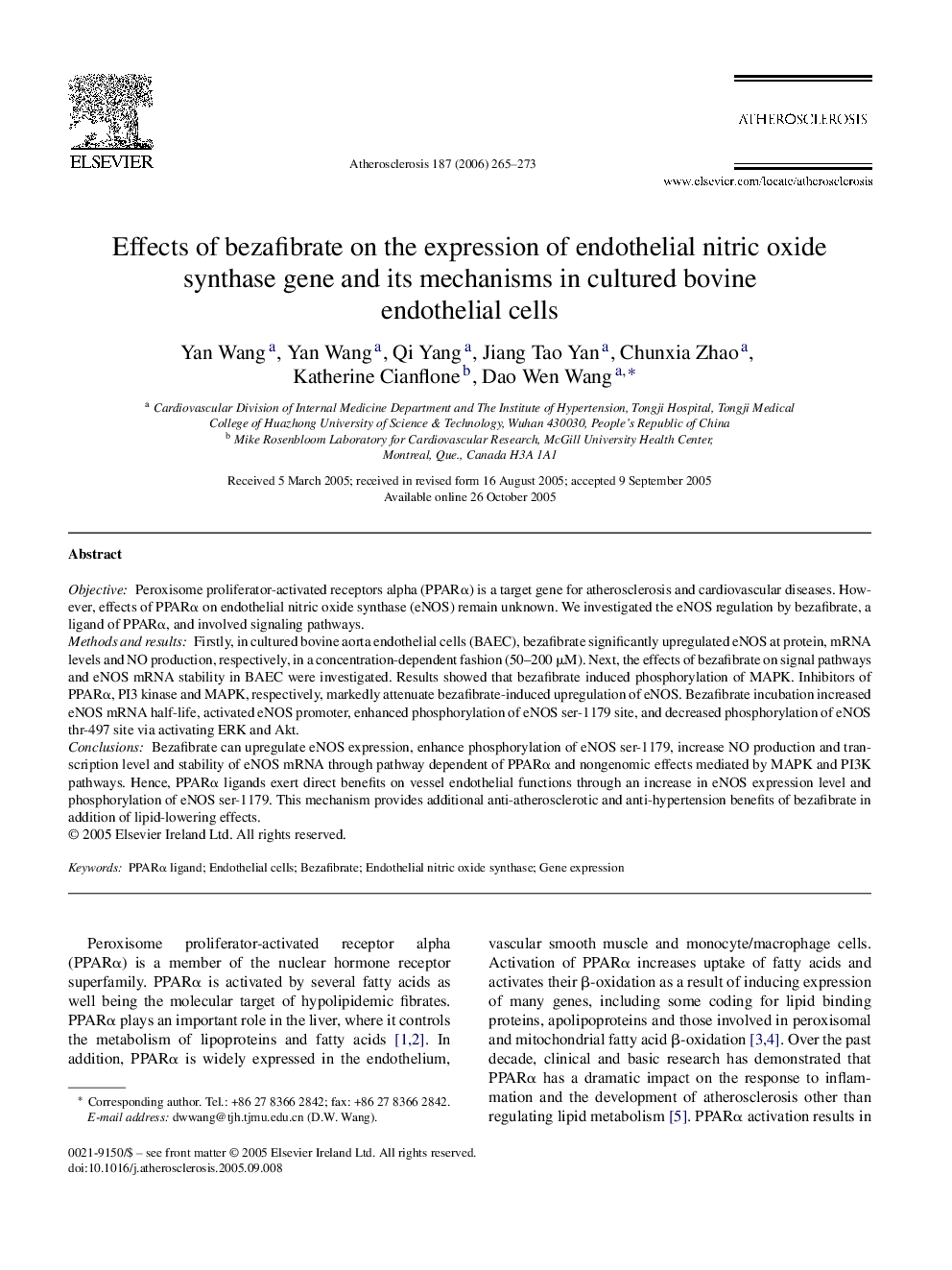| Article ID | Journal | Published Year | Pages | File Type |
|---|---|---|---|---|
| 2895108 | Atherosclerosis | 2006 | 9 Pages |
ObjectivePeroxisome proliferator-activated receptors alpha (PPARα) is a target gene for atherosclerosis and cardiovascular diseases. However, effects of PPARα on endothelial nitric oxide synthase (eNOS) remain unknown. We investigated the eNOS regulation by bezafibrate, a ligand of PPARα, and involved signaling pathways.Methods and resultsFirstly, in cultured bovine aorta endothelial cells (BAEC), bezafibrate significantly upregulated eNOS at protein, mRNA levels and NO production, respectively, in a concentration-dependent fashion (50–200 μM). Next, the effects of bezafibrate on signal pathways and eNOS mRNA stability in BAEC were investigated. Results showed that bezafibrate induced phosphorylation of MAPK. Inhibitors of PPARα, PI3 kinase and MAPK, respectively, markedly attenuate bezafibrate-induced upregulation of eNOS. Bezafibrate incubation increased eNOS mRNA half-life, activated eNOS promoter, enhanced phosphorylation of eNOS ser-1179 site, and decreased phosphorylation of eNOS thr-497 site via activating ERK and Akt.ConclusionsBezafibrate can upregulate eNOS expression, enhance phosphorylation of eNOS ser-1179, increase NO production and transcription level and stability of eNOS mRNA through pathway dependent of PPARα and nongenomic effects mediated by MAPK and PI3K pathways. Hence, PPARα ligands exert direct benefits on vessel endothelial functions through an increase in eNOS expression level and phosphorylation of eNOS ser-1179. This mechanism provides additional anti-atherosclerotic and anti-hypertension benefits of bezafibrate in addition of lipid-lowering effects.
